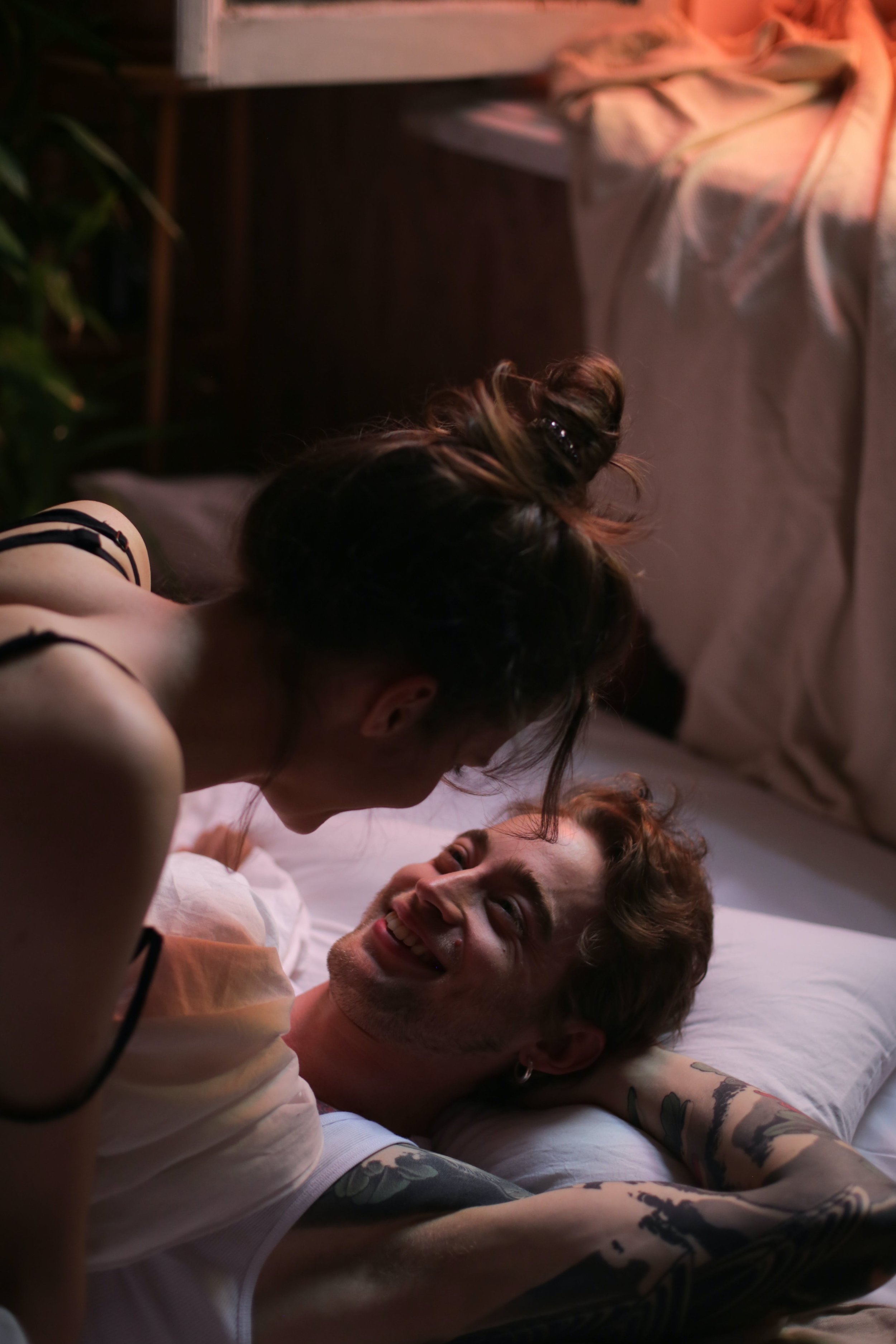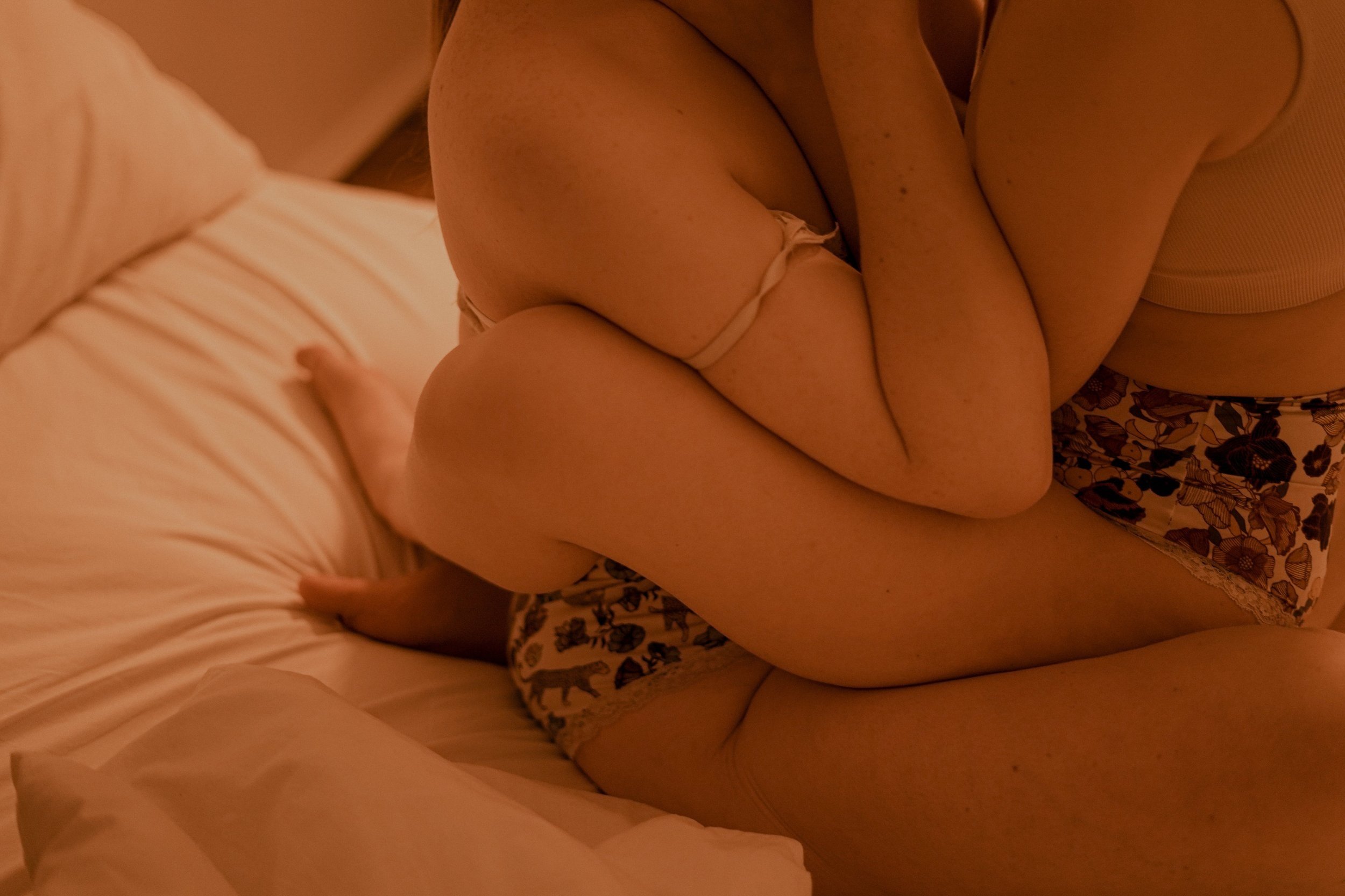How does the menstrual cycle affect sexual desire and libido?
Have you ever wondered about the possible connection between your menstrual cycle and sexual desire? There can be times when the urge for intimacy is on fire, and other moments when it seems to be in hibernation; but is this linked to the menstrual cycle? In this blog post, we are going hardcore into the intricate connection between sexual desire, and libido, and how this relates with phases of the menstrual cycle.
Understanding Sexual Desire.
What do we mean by libido?
Libido, often referred to as sexual desire, is the driving force behind any sexual activity. Influenced by various factors such as age, health, medications, hormones, stress levels, and relationship status, libido is as unique as the individual experiencing it. It's worth noting the subtle distinction between libido and sexual desire – the former may be purely for pleasure and release. At the same time, the latter can encompass both pleasure and the pursuit of intimacy and connection.
Is there a “normal” sexual desire?
Absolutely not. Libido varies widely among individuals and can even fluctuate within the same person. Libido is the desire to engage in sexual activity, but think of it like the desire to drink a coffee. Some people drink vast amounts of coffee throughout the day, and they feel they “need” it. Others never drink coffee and don’t even like it. And yes, some people can have no sexual desire, either because of a condition known as Hypoactive Sexual Desire Disorder (HSDD) (1) or because they are asexual in terms of their sexual orientation (2). Whether your sexual desire is high or low, what matters most is your satisfaction. If you have concerns about your libido, consulting with a healthcare provider is the best move.
The Menstrual Cycle's Influence on Libido.
Hormonal Fluctuations:
Well, I mentioned earlier that hormones are one of the biological factors that can have an impact on sexual desire. The menstrual cycle is essentially a cycle that is dominated by hormonal fluctuations. [Check this blog post out to learn more on that]. Progesterone is one of the two main hormones that regulate the menstrual cycle, with levels rising after ovulation during the luteal phase. This change in the hormonal balance, with lower estrogen levels and higher progesterone, is what is believed to cause a decreased libido during the second phase of the cycle.
Does that mean sexual desire is highest in the first half of the menstrual cycle?
That would make sense right? I mean, just before ovulation during the first half of the cycle, there is the fertile period with increasing estrogen and luteinizing hormone, where you are more likely to conceive. So of course, biologically speaking, it would make sense that around this time, the urge to engage in sexual activity is at its highest, making it more likely for a pregnancy to occur. A bit similar to the way female mammals tend to go into “heat” for short periods around the time that they can get pregnant. But are we, as humans, all eager for sex around the time of ovulation every month?
Does sexual desire peak at ovulation?
I mean for you… does it? I know for me it doesn’t. However, there have been studies carried out that have shown that this may be the case. Researchers at the University of Virginia asked 115 women to complete two surveys, during different times of their menstrual cycle, relating to their libido and sexual function. From this, it was seen that there were significantly more who were interested in sex and enjoyed sex during the middle of their cycle, around ovulation (3). A more quantitative approach was carried out by researchers in the Netherlands. In this study, the genitals of 20 women were monitored to analyse blood flow, whilst they were shown erotic movies. The results of this found that the blood flow around the genitals increased the most around the time of ovulation, suggesting an increase in physiological arousal. The women also confirmed this by saying that they felt more sexually aroused (4). Like these two, there have been several studies that have concluded that libido does peak during or around ovulation (5). Women were found to masturbate more (6), watch more erotic films (7) and even appear more sexually attractive during this time (8).
Why is sexual desire highest around ovulation?
Thinking about the hormonal fluctuations during the menstrual cycle, estrogen levels are rising leading up to the time of ovulation and progesterone levels are low. Estradiol, a type of estrogen may be the key player in modulating libido across the menstrual cycle (9). This is also supported by the fact that lower libido is also one of the symptoms reported by postmenopausal people, where estradiol levels are notably decreased (10).
However, estrogen is also known to affect mood-regulating neurotransmitters such as serotonin and dopamine, and generally, you are more likely to feel emotionally and physically “good”, at this time. Before ovulation, during menstruation, you may have cramps, headaches and other period-related symptoms that might not make the thought about having sex too appealing… and oh yeah, menstrual blood – of course. Sex and masturbation during periods aren’t for everyone (although orgasms may be good for relieving menstrual cramp pain) (11). Anyway, after ovulation, you then have the luteal phase. This is the time when those PMS-related symptoms might be making an appearance; bloating, sore breasts, mood swings, irritability and so on. This is the time, when some may find it hard to be around other people, let alone have sex with them… But with this, it does seem that around the time of ovulation is the only time that is “good” for us to want to have sex, with maybe less pain, better mood and energy, better sleep, glowing skin etc. (12). And it’s good if you want to get pregnant of course, because this is the time where you are more likely to be fertile. Ovulation time is THE time to get frisky. So maybe, humans do have a general “heat” time with an increased libido?
But then is this the case for everyone?
Well, it’s not for me… and it wasn’t always found to the be case for everyone in all studies. One study asked women to rate their level of arousal in response to a sexual trigger, and did not find any differences associated with the phase of the menstrual cycle that the women were in; they said that arousal seemed to stay pretty consistent throughout the menstrual cycle (13). But okay, this is just one study and there could have been some limitations to the study that we won’t go into. Besides the fact that the general scientific consensus is that most people were found to want to have sex or engage in sexual activity around the time of ovulation, there is just more to it than the biological aspects to consider that might not have been taken into account in all of the studies.
Why not everyone might have a higher libido around ovulation.
There are other factors besides hormone levels and the actual menstrual cycle that affect libido. As mentioned before, some people have no sexual desire or sexual attraction at all, regardless of the menstrual cycle phase they are in, whereas others always have a high libido. Sexual desire and sexuality are like a spectrum, in this respect. Various factors can affect where a person is on this spectrum, on a given day, or moment. High stress levels, for example, can affect libido and reduce interest in sex. One study showed that stress due to work had an impact on the menstrual cycle changes in libido as well, with little changes observed across the cycle as a result of higher stress levels, suggesting that even the libido peak around ovulation was impacted (14). There is also some evidence that hormonal contraception affects cyclical libido changes, with those taking a contraceptive pill showing no changes in libido during the menstrual cycle, whilst those who didn’t use any had fluctuating sexual desire throughout the month (15). Stress levels and hormonal contraception are just two examples, but many factors could affect libido which could account for no peak in sexual desire around the time of ovulation for some people. In any case, it seems pretty evident that this increase in libido is only very subtle anyway; it’s not like the majority of menstruating people are walking around like a bitch in heat for a few days every month!
Do you have a higher libido around the time of ovulation?
If you’re reading this wondering if you have a natural increase in libido around the time of ovulation, the simple way to find out is to simply track it. Keep a diary, or make a note in your period-tracking App. Throughout your entire menstrual cycle, just make a note of how much you desired sexual activity, engaged in sexual activity, masturbated or even just found yourself getting aroused looking at something. Make a note of which phase you are in in your menstrual cycle so you can see if there is a pattern emerging across a few cycles. The important thing to remember is that everyone’s libido is different, and there is no “normal” libido; it doesn’t matter if you have a low or high libido as long as you are happy with how it is. If you do have any concerns about your libido then it’s best to speak to someone about it, as there could be an underlying issue causing it.
Conclusion
Although there is a fair bit of evidence supporting differing libido across the menstrual cycle, there is still some uncertainty as to whether libido is higher around the time of ovulation. This is mainly due to the accuracy of the known ovulation time, used in these studies (16). A higher sexual desire around the time of ovulation does make sense though, when you think in biological, reproductive success terms. Around ovulation is the time when conception is more likely, so it would be advantageous (in an evolutionary sense) for sexual behaviour to promote both mating and pair bond formation, which was shown to be the case in one study (17). If you do notice that you have an increased or decreased sexual desire at certain times during your menstrual cycle, you can try to use this to your advantage! Plan those date nights for that time, schedule some me-time, or just be kinder to yourself when you aren’t in the mood. As long as you’re happy, and your libido is not affecting the quality of your life, that’s all that matters.
Further reading:
[Links to references are within the text body as citations].




